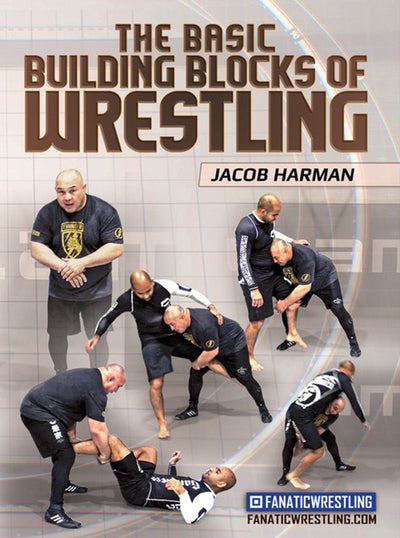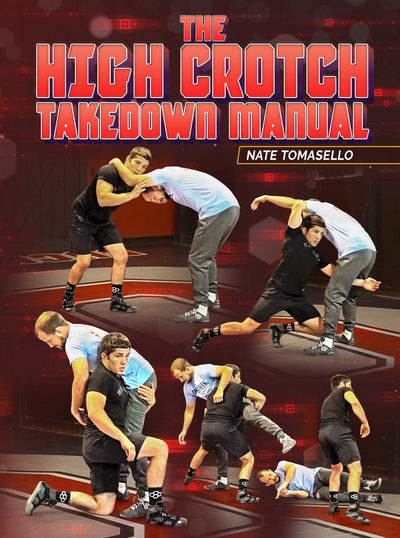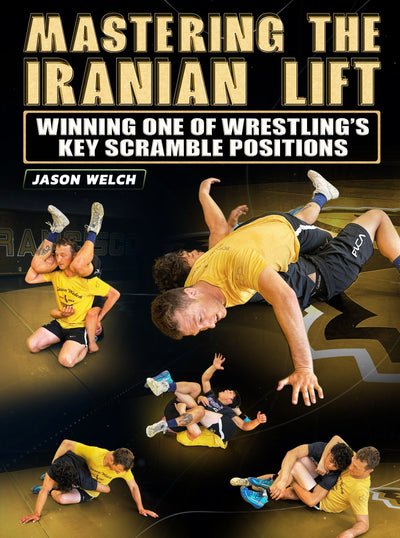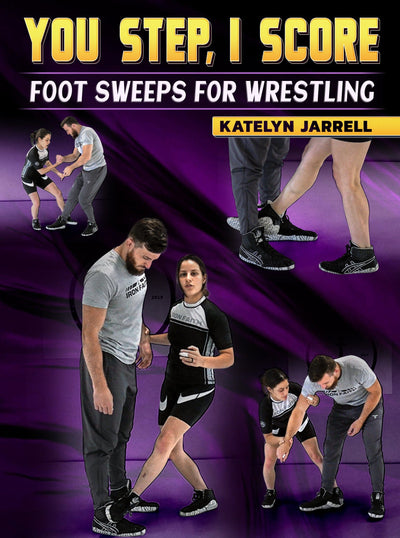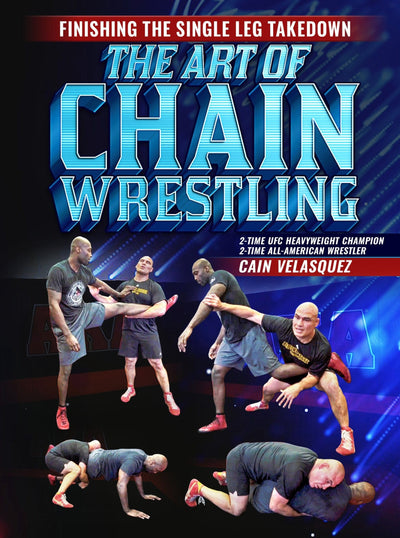Strength and Conditioning For Wrestling Part 3
Welcome back, guys! This will be the third and final installment of my strength and conditioning series here on the Fanatic Wrestling page. The goal in the third chapter of my series is to give some knowledge on some weight cutting tactics, meal and hydration tips, and at the end, a supplementation and recovery portion.
Weight Cutting Tactics:
Some of the stuff I list here will probably be slightly repetitive based on what you have heard from other coaches, teammates, or any other reputable source you surround yourself with. Some of the stuff I list are tips that worked for me (which I will differentiate), that you are more than welcome to try out. Everyone’s body works a bit different.
-Lean protein is going to refer to things like chicken, fish, and eggs. We can have some red meat like steak or roast but typically during a cut phase we keep to the leaner stuff. That being said, if you find yourself with some leeway with your weight feel free to indulge.
- Veggies and Legumes
-The goal for the veggie and legume intake is to keep it pretty diverse. Growing up I was always a garbage disposal so there wasn’t much I would turn down. Things like broccoli, cauliflower, asparagus, colored bell peppers, onions lettuce, tomato, cucumber, the list goes on. I’ll give you some of the ones I prefer, and a reason or two as to why.
-Broccoli earns a top spot for two reasons, the first of which is that it is a natural way to help boost your testosterone. The second is that it also has a lot of minerals that are crucial for the building of strong bones. Strong bones won’t get injured as often, and healthy testosterone levels do wonders for your workout recovery, and your mental state.
-Cucumber earns its spot for one big reason; they are filled with water, and aid the hydration process. The better hydrated you are the less you’ll wear down, and the easier your overall cut can be.
-Bell peppers (Specifically red) are one of my absolute favorites. They are naturally sweet, and can go with just about anything you can think of. Here are two big reasons we should consider adding red pepper to our diet. We all know how terrible it can be to get sick during season and suffer through it for a few days; well red pepper has 200% worth of your daily intake of vitamin C to help combat any bugs that may find their way into your body. The second reason is because they can work a number on your metabolism. Red bell pepper doesn’t contain capsaicin which is the key component that makes other peppers spicy and makes us sweat, however red pepper is a mild thermogenic activator. More active metabolism equals better chance at weight lost.
-Beans: Instead of including beans in the veggie and legume category I gave them their own. Beans are a good low calorie source of protein, fiber, and good carbs, and they tend to sit lighter on your stomach than any of your other protein sources. Beans give you a good lightweight option for protein and help regulate your stomach with the fiber to make sure everything is moving along as it should.
-Fruits I’m generally not too picky on. The closer you get to making weight, keep the higher carb count ones off your palette. Apples, watermelon, and bananas are my all-time favorites for things like potassium, hydration help, fiber, and a load of other reasons. You really can’t go wrong here as long as you pay attention to your specific needs.
Now that your diet is in check let's get your MIND in check! Click Learn More!
Post Weigh-in:
Post weigh-in, what we it is crucial because it will play a factor in our energy levels and the way we feel throughout the day. There are three things we need to concern ourselves with here and that is hydration, avoiding catabolism, and good carbohydrates to fuel our championship run. Catabolism is where your body starts to in essence feed on itself because of the duration we may or may not have spent without nutrition. Supplements help with these issues and I’ll include those as we go.
Hydration: depending on the level of dehydration post weigh-in, water may not cut it, I generally recommend Pedialyte. It has all the electrolytes you’ll need with nowhere near the amount of sugar you’ll find in most sports drinks like Gatorade. Another thing I both use and recommend are Branched Chain Amino Acids (BCAAs) both post weigh-in and throughout the day. BCAAs will satiate your body enough to avoid the catabolic state we talked about earlier, as well as hydrate your body, and provide a bit of an energy boost. I recommend BCAA’s throughout the day as well for a couple reasons; 1, you don’t have to slug it like water to feel its effect, and 2; it will keep you hydrated and fueled in between matches. Usually a successful tournament day is 4-5 matches give or take and we want to make sure we are prepared for each of them.
Food During the Tournament: Contrary to popular belief, protein at this stage of the game can be detrimental to your performance. A lot of protein, especially after a cut, can be extremely hard to digest, and slow your system down, overall affecting the way you perform over the course of the day. Carbs, as of right now, are the most important of our macronutrients as we need to refill depleted glycogen stores within our muscles to give them the necessary energy source they need to perform as we need them. To keep things simple I always give one basic recommendation as far as food post scale, peanut butter and jelly on whole wheat with a banana. A good stable source of carbs, some necessary fats, natural sugars for your energy levels, and potassium to ease any strain on your muscles, it’s a simple, cheap, and sustainable go-to that never fails. If you get hungry throughout the day, you can always eat more.
As far as substituting goes, I’d try to stick to it just for the pure ease of accessibility and the ease of being able to reuse this same formula time and time again. If you must substitute for taste or allergy reasons though, I’ve got you covered!
Substitute for bread: regular wheat, white (if you absolutely have to, it is useless and has no nutritional value, oat bran bread, whole grain tortilla.
Substitute for peanut butter: almond butter, hazelnut butter pecan butter, pumpkin butter, or apple butter. NUT ALLERGIES USE THE FOLLOWING: sunflower seed butter, tahini, cookie butter, and coconut butter.
Substitute for jelly: Jelly isn’t a huge piece of the puzzle so simply put; if you don’t like it don’t use it.
Substitute for banana: apples, watermelon if you have it on hand, oranges, tangerines, plums, pretty much anything with a good source of natural sugar that can be easy for you to transport.
Supplementation and Recovery
I am a firm believer in supplementation before, during, and after practices and tournaments or matches. Below, I’ll list what I use personally and why plus some potential alternatives should any problems arise.
Pre-workout- I won’t disclose brands because I don’t want this to turn into some weird company advertisement, but I use pre-workout before my lifts/workouts or for practice, whichever I deem will be harder. I never exceed one scoop in a day personally as I do not feel like I need to. A good pre-workout has more than just caffeine; B vitamins, citruline, Niacin (vitamin B3), and Beta Alanine.
BCAA’s w/ Energy- I use BCAAs with added caffeine generally for whatever workout I didn’t take my pre-workout. These help foster an anabolic environment while giving us just a good enough boost (50-100mg of caffeine) to bust through our workout.
BCAAs- Regular BCAAs with no caffeine for post or intra workout help with pain management post workout. They again help foster that anabolic environment that allows us to keep on lean muscle mass, or build more depending on our diet and goals at the time. These are also beneficial for hydration, and for when we go on extended periods of less than optimal nutritional intake as this will help keep our body satiated.
ZMA (Optional)- ZMA stands for Zinc and Magnesium Aspartate. Zinc for one, supports muscle building and a healthy immune system. Magnesium plays a vital role in metabolism, muscle health, and also helps manage sleep. Studies show that these ingredients can aid muscle strength, stamina, speed up muscle recovery, and help give better quality sleep. I personally take certain pills like multis and vitamin D but these are for a case by case basis and not really necessary.
Hydration
This one is big to note, it is easy to keep in check but also the one that most athletes forget quite often. Simply put, a dehydrated body WILL NOT PERFORM, PERIOD! Half your natural bodyweight in ounces is usually a good number to try and hit. I personally think that the 80-128oz mark works the best. I know it seems like a lot but you will constantly sweat this out while working out, you’ll urinate more often, but most importantly, your body will thank you later.
The Big Picture….and what to take away
Although I believe in the importance of supplementation, let’s not forget the backbone of this piece of the article, proper nutrition and hydration. These three things together form an interrelated pyramid that work in harmony, however don’t try to replace a crappy diet or hydration plan with more powders and pills. If you’re a person out there that doesn’t feel like you can afford the supplements I recommend, DON’T! They definitely aren’t the know all be all. Focus on the things you can control and make them true to form. If you can afford them and would like to delve into the supplementation, I’d recommend it.

If you got 1% better EVERY DAY where would you be in a year? Ricky Lundell can take your strength to an all new level with his 1% Better Every Day Strength Building System!





